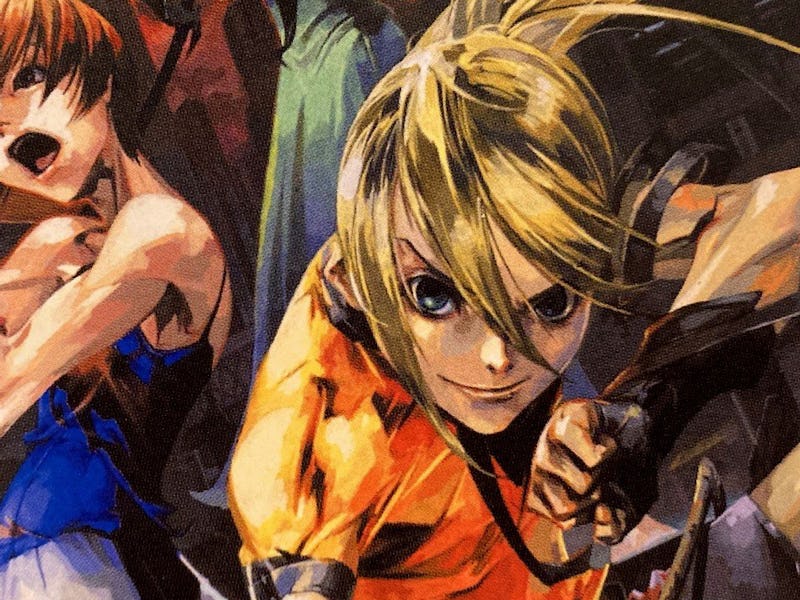You need to play this forgotten sci-fi classic on Nintendo Switch ASAP
Sinful thrills.

In the early 1990s, Treasure was an upstart game developer doing its best to play with, and even one-up, the big boys. The company had its roots in creative freedom, when founder Masato Maegawa grew tired of creating endless sequels to mega-franchises like Teenage Mutant Ninja Turtles, Contra, and Castlevania. He and a few other employees decided to forge their own path.
They found quick success, both in their commercial tie-in games for McDonald’s and in their first original concept, Gunstar Heroes for the Sega Genesis. Maegawa wanted to move away from Konami’s bread-and-butter, the Super NES, and the Genesis was a perfect fit. The system had the technical specifications they were looking for, and the Genesis had the mentality of an upstart just like Treasure.
Flash-forward a few years and the video game industry had changed dramatically. Neither Treasure or Sega was an upstart anymore. Sega, in fact, was struggling under the botched release of its Saturn system. Treasure had hit its own rough patch, with a series of games that were canceled and met with middling reviews.
But once again, they found inspiration in a new system: the N64. In 2000, Treasure released its first truly 3D game, finding inspiration in the N64’s unique controller. Sin and Punishment, a rail shooter which would develop a cult following, is an absolute blast.
The game takes place in the far-off dystopia of 2007 amidst a global famine. Attempts to genetically engineer new animals called Ruffians to eat have backfired, as the Ruffians are now attacking people. A peacekeeping mission called the Armed Volunteers have been sent to Japan to keep the population safe, but it sure seems like they’re actually partnering with the Ruffians.
Luckily there is a rag-tag group fighting back, composed of mysterious leader Achi and two disciples Saki and Airan, who are the game’s protagonists. The group has a lot of shooting to do to get through both the Ruffians and the Armed Volunteers.
It’s worth playing the game’s ‘90s-minimalist tutorial, if just to remember how games of this era play. But it’s also worth playing through to see what Treasure saw in the N64—its controller. The controller’s signature “M” shape looked radically different than anything Nintendo had tried before. Mario 64 set the tone for both the console and the controller, and players started gravitating towards the center-right, the parts of the controller with the A and B buttons, the yellow directional buttons, and the Z-button.
A transparent blue Nintendo 64 console and controller, circa 1996.
But what about the left side? Talking to Nintendo years later, Maegawa said that “we started talking about how anyone hardly ever used the left position, even though you can perform independent actions with it.” So the D-pad plays an unusually large role in Sin and Punishment, allowing players to perform crucial rolls as they dodge obstacles in their path.
Unless you’ve bought the N64 Switch controller, which is currently out of stock, none of this really applies. Using a standard Switch controller, the game still works, mapping the Z button to the back right, and keeping the D-pad as is. While the novelty of playing on the left side no longer exists, the controls still feel fluid.
Character designs in Sin and Punishment are treasures of the early 3D era.
Gameplay itself is a lot of fun, and will be familiar to anyone who has played railgun classics of the era like Time Crisis or StarFox 64. The evil creatures flock all around, the Armed Volunteers hover and fly, and the player’s trigger finger is glued down knocking them all out. The graphics look wonderful for the era, leaning into the blocky and pointy nature of early 3D games.
Treasure made games with small teams and big ambitions. “‘The few and the proud’ isn’t just a cool-sounding philosophy. You really can’t make anything with large numbers,” Maegawa told Nintendo. This often resulted in very personal creations, even amidst games that can feel a little ridiculous. Sin and Punishment looks unique, plays unique, and captures a moment where the N64 presented a world of new opportunities.
This article was originally published on